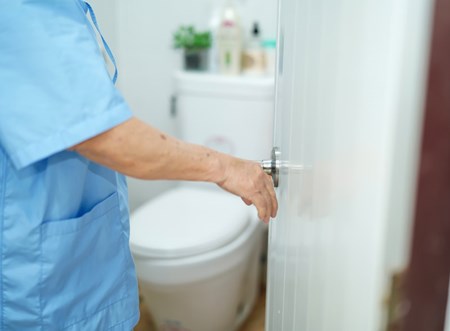
What to Do When Your Parent Becomes a Picky Eater
Tips to Healthier Aging
My Mom Doesn’t Eat Enough!
What is the first thought that runs through your head when you hear your friends complaining about their elderly parents not eating?
A lot of families bring their elderly parents to the doctor because they think they are not eating enough. This is a valid concern, especially when our culture associates feeding with care and love.
It makes us uncomfortable when people eat less or worse – not eat at all.
Let me break down some of the most common causes of a sudden lack of appetite in the elderly population.
Constipation
Constipation is one of the most common reasons why people are not hungry.
They do not empty their bowels, regularly causing their brain to sense that they are full.

Lack of Physical Activity
Increased physical activity promotes utilization of stored energy. This stimulates your body to acquire more energy from eating.
The less activity you do, the less energy you need.
Also, being immobilized or bedridden causes less gravity stimulation in the gut, further causing constipation, which as we’ve talked about earlier, can cause a decreased sense of hunger.
Medications
We don’t think about this that much, but medications can cause changes in the taste buds as well as decrease our ability to smell things. This is very important in stimulating hunger in patients.
Some medications can directly or indirectly inhibit the hunger sensation by paralyzing the gut, causing a sense of fullness.
Some strong pain medicines are notorious for doing this – they make patients feel full.
Others can make them sedated, nauseated or feel tired enough that even though they are hungry, they do not feel like eating.

Health-Related Conditions
Some medical conditions, such as Alzheimer’s disease, can cause individuals to lose the capacity to chew food and swallow. Certain conditions also can cause a person to misinterpret body sensations, such as hunger.
Individuals with worsening COPD and heart failure can have difficulty swallowing food because it temporarily cuts off their respiratory pathway.
People who suffered strokes in the past can have difficulty swallowing food, so much so that they end up refusing to eat.
Depression makes people less hungry.
Colon cancer can cause bowel obstruction and anemia, which can affect stool output and energy, making people weak and less hungry.
Uncontrolled diabetes also can cause abnormal colon function and can affect digestion and bowel movement.
Smoking and Alcohol Use
Smoking and drinking too much alcohol can affect our sense of smell and affect the taste buds, so quitting is really encouraged.
So what can we do to help improve someone’s appetite?
First, do not ignore the urge to have a bowel movement.
Schedule a regular time for our elderly loved ones to sit on the toilet and move their bowels.
Make it a comfortable and peaceful experience. Avoid rushing them or making long conversations so that they can focus on that activity.
If they are having hard stools or straining a lot, check if they are drinking enough fluids. Intake of fiber-rich food should help, but you need to couple it with increased fluid intake. If not, this will just worsen the constipation.
Prune juice is a great alternative to medication. Papaya also usually does the trick.
If these things are not helpful, then your doctor might need to evaluate your loved ones and review their lists of medications to see if something else is causing this.
The doctor might prescribe some medications to help normalize bowel movements.
Remember, not all medicines work the same way. It is better to ask your provider which medications are needed.
Second, incorporate daily activities into their schedule so they can burn those energies and in turn feel hunger.

Serve food that your loved ones actually like to eat. Smell plays a big part in stimulating appetites.
Think about adding herbs to your recipe or some lemon to add that zing.
Make sure that the texture of the food is appropriate – some of our kupuna don’t have teeth, so biting and chewing hard, solid stuff might be a challenge for them.
Give them high-calorie snacks to make up for their low oral intake. Ice cream, shakes or a slice of cake usually does the trick.
Last but not least, inform your medical provider about your concern so he or she can evaluate your loved ones for health-related causes such as depression, COPD or heart failure.
Also, schedule and take your loved one for regular dental checkups.
For patients with Alzheimer’s, hand-feeding sometimes does the trick. Providing fragrant and colorful high-calorie meals also helps.
Make eating an entertaining time. If they can only eat several spoonfuls, make those spoonfuls count by providing high-calorie meals.
Do not force your loved ones to eat more than what they want.
At the end of the day, remember that providing food for others is just one way for us to show our love and care.
There are other things that we can do for them, such as offering to clean their house, driving them to and from their errands, or listening to them reminisce about their childhood.
Quality time together often is very appreciated but overlooked.

Published on: February 19, 2019





